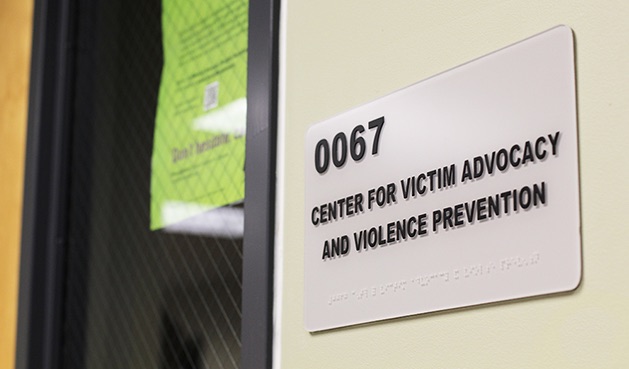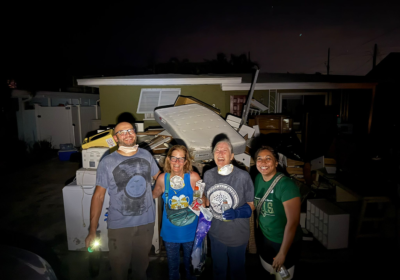Center for Victim Advocacy and Violence Prevention highlights resources for survivors of sexual violence

Following a sexual battery case that occurred in a University of Florida residence hall Nov. 16, the Center for Victim Advocacy and Violence Prevention shed light on resources offered to USF students.
The incident, which took place between midnight and 12:30 a.m., occurred while the victim was returning from her dorm room with the suspect after leaving a drinking establishment near campus, according to The Alligator.
In the aftermath of the case’s reporting, assistant director of advocacy services Megan Deremiah said many factors need to be considered by the public when implementing sexual violence prevention mechanisms on college campuses.
For example, USF PD already has extensive safety measures — such as swipe access to residence halls and police surveillance of public spaces — in place, according to Deremiah. When thinking of how to support survivors of sexual violence following an assault, however, she said social support systems stand as integral parts of recovery.
“The only thing I always like to make sure to add … especially when there’s publicized or well-known cases of sexual violence, is that it can create a very singular narrative of what sexual violence looks like,” she said.
“Sexual violence comes in a lot of forms and a lot of different varieties. So I just like to make sure that people know that there’s a lot of people who experience something and say ‘well, I don’t know if this counts.’ My recommendation is that if it has caused harm, it counts, come talk to us.”
Since the pandemic, Deremiah said the Center for Victim Advocacy and Violence Prevention has experienced an increase in not only survivors of sexual violence stepping forward, but survivors of overall violent crimes.
In addition to more students returning to campus, Deremiah said herself and other representatives of the Center also attribute the influx of client visitations to an increased willingness among students to seek services for their experiences.
Approximately 19% of female and 5-6% of male college students will be sexually assaulted during their time at college, according to Know Your IX. However, Know Your IX added that only 12% of college student survivors report their sexual assault to law enforcement on average, usually due to a lack of proof, fear of retaliation or a lack of knowledge on how to report an assault.
The Center offers a variety of resources for students looking to report a sexual assault or seeking support resources, according to Deremiah. For those seeking emotional support validation, she said representatives often refer students to education on trauma or the Counseling Center for more extensive psychological assistance.
There are also advocates willing to accompany students to a forensic medical exam, colloquially known as a “rape kit”, following an assault, according to Deremiah. As the university cannot conduct the procedure on campus, she said survivors are generally sent to the Crisis Center of Tampa Bay, a 24/7 rape crisis facility for Hillsborough County.
University Police Public Information Representative Michael Lavelle wrote that for students seeking legal support, USF PD offers services spanning from crime alerts, options to submit complaints, a SmartWeb activity map and rape aggression defense classes for women.
“Here at USF, we [are] committed to the safety and security of our campus and community. The USFPD is a full-service department which includes routine patrols of the campus and residential areas 24/7 365,” he wrote.
“In the event a student or guest feels unsafe or threatened, they should immediately call 911. We also strongly encourage anyone to say something if you see something as safety is everyone’s responsibility,” he said.
Survivors might also experience safety concerns and academic struggles following an assault, according to Deremiah. In such cases, she said the Center will work to connect students with the USF Title IX office to assist in filing a report, coordinating safety planning or navigating security measures in survivors’ residence halls.
Preventing the reoccurrence of sexual violence on college campuses ultimately requires cultural change, according to Deremiah. From holding conversations among one’s peers to implementing education on sexual assault, she said ending sexual violence begins with addressing sexually hostile behaviors as soon as they start.
“So as a department, we get to focus a lot on cultural change and university culture. We get to talk to our students and think about questions such as ‘How do we develop a student culture that it really is trying to acknowledge and commit to an anti-violence lens? How can we create a culture that interrupts violence before it happens?’” she said.
“Things like catcalling and sexual harassment live on the same spectrum as sexual assault and rape, and so if we’re acknowledging that, maybe we can interrupt earlier in the spectrum and teach and empower each other to do that. If we don’t tolerate sexual harassment, we definitely won’t tolerate anything else that comes further along in that spectrum.”






